Recently, after reading about a talk Michelle Obama gave in Indianapolis, I got to thinking about patient advocacy, particularly about patient advocates having a seat at the table where healthcare decisions are made.
We know that there are many tables in the world where decisions are being made that will have an impact on our health and lives. Some of those tables are in government settings. Others are in medical settings. Still others are in corporate settings.
Whether it’s at a hearing, conference, industrial meeting, clinical trial, or in a doctor’s office. Every day people are having discussions and making decisions that will decide our fate. These discussions determine what resources, if any, are put to finding cures. These decisions determine the affordability and availability of treatments and care.
Every one of these tables could benefit from including patient voices in the discussion. After all, we’re the ones who deal with the day-to-day reality. We’re the ones who suffer the consequences or experience the benefit. We’re the ones who can help them figure out if there’s a market for the devices, drugs, and treatments they want to sell.
As the saying goes, #NothingAboutMeWithoutMe.
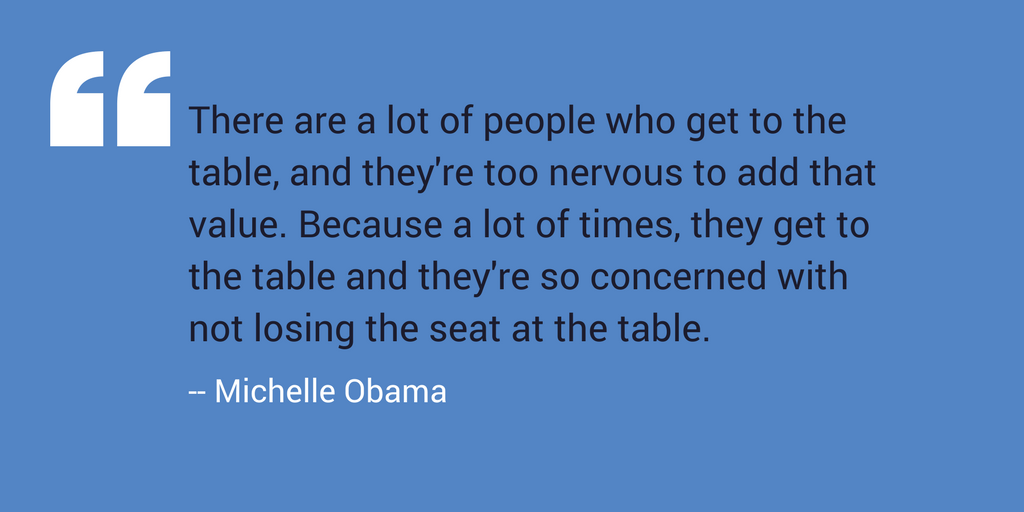
Once a patient gets a seat at one of these tables the stakes are high. Even when that one patient takes pains to say she is speaking based on her own experience and knowledge, her words are taken as speaking for thousands, maybe even millions, of people. This responsibility can weigh heavily.
It’s not easy to get a seat at the table. The patient has to be invited. Which means the host needs to know the patient or their advocacy work in some way. The host is looking for an influencer, someone who can share and promote what happens at their table. Part of being a patient advocate who gets a seat is being visible and having a following.
Usually the host pays travel expenses for the patient to participate. Because something of value has exchanged hands a formal agreement is usually signed. And the law requires that the patient disclose this arrangement any time she writes or talks about being at the table and what happened there.
We patients realizes that our seat at the table is not guaranteed. Just because we were asked to participate once doesn’t mean we’ll be asked to participate again. There’s no guarantee that any other patient will be asked to participate ever again.
Knowing this, it’s natural to wonder “What happens when I no longer have a seat at this table?” Fear can take hold. “What if I say something wrong? Will that mean to no other patient will be invited to this table?” Worry can take over. “Maybe I should be careful what I say. Maybe I should just stay quiet.”
To that I say, “Be brave. Speak up.”
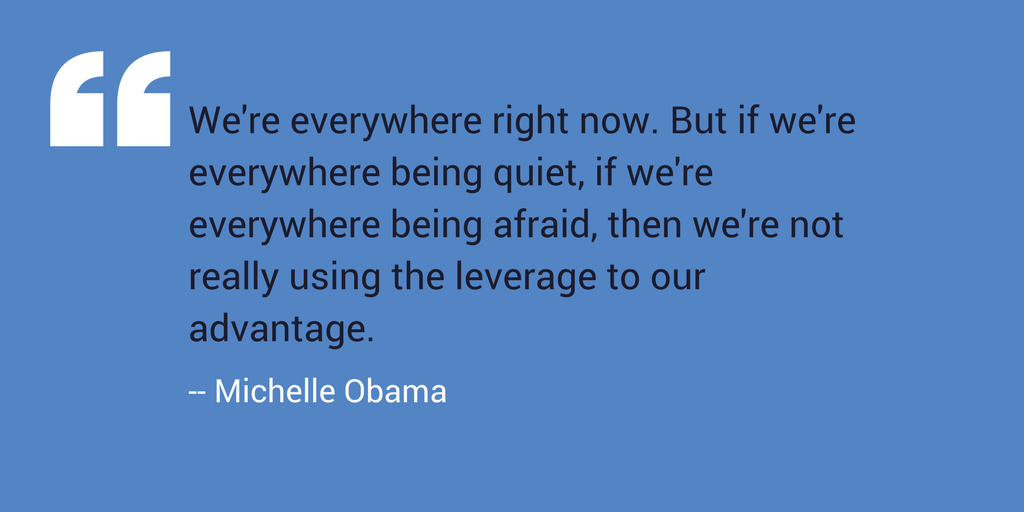
Remember, we don’t lose our voice if we’re not asked back to sit at any particular table. We only lose access to someone else’s platform.
And maybe, just maybe, that platform isn’t for us.
There’s no guarantee that the other people at that table understand, accept, or even value what patients have to say. They might not be in a position to use what we offer in terms of information, knowledge, and insight.
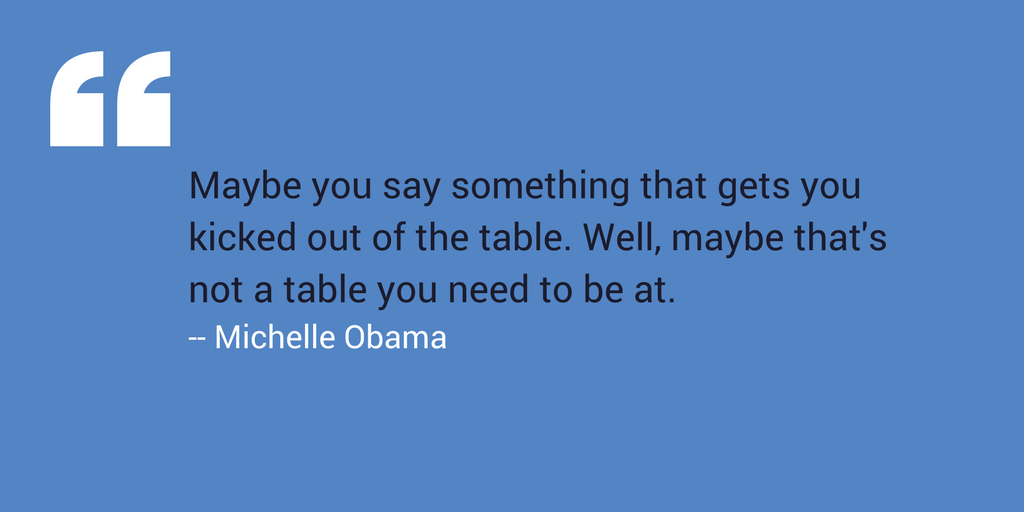
Thankfully, patient advocates have access to social media, patient communities, and advocacy organizations. We can, and have, build our own platforms for communication and influence. An amazing array of decision makers pay attention to social media these days. Actual discussions of health issues take place on Twitter and Facebook. Activism is now part of most advocacy organization playbooks.
We can lift our voice wherever we are, whenever we have something valuable to share.
We just have to keep at it.
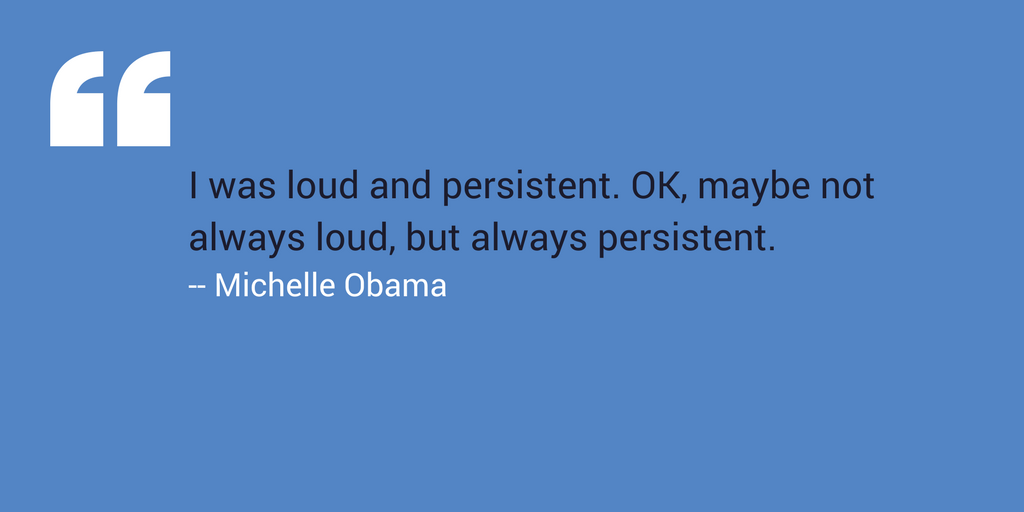

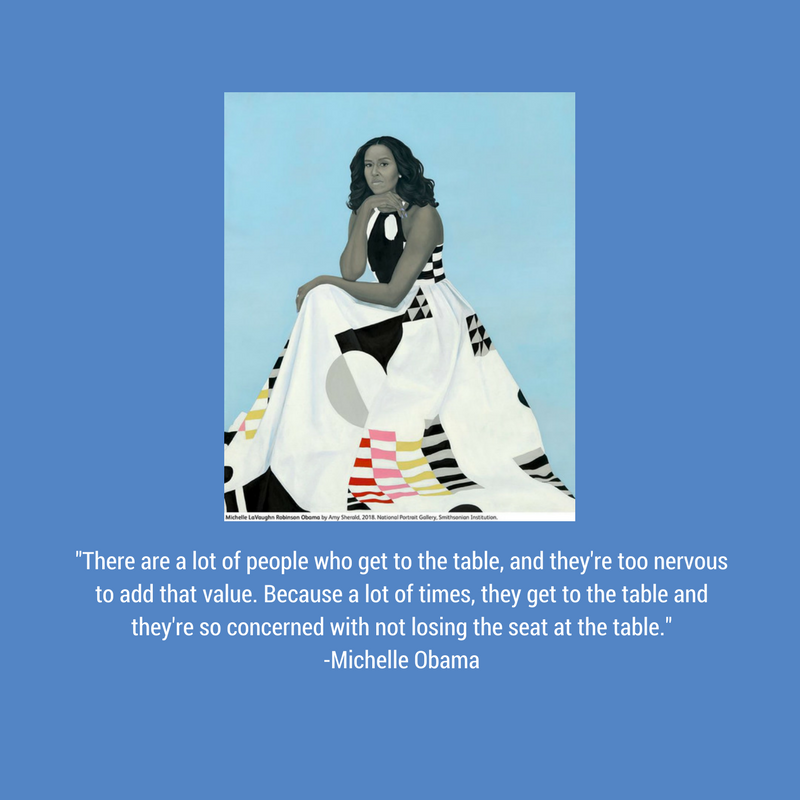
Well said. And a wonderful piece, Corinna.
Thank you Grainne.
Corinna,
you touch on so many points that resonate with me as I sit at a number of tables and often am not invited to others or not asked to return. There are only so many seats at each table, and sharing seats isn’t always possible.
Your observation “Remember, we don’t lose our voice if we’re not asked back to sit at any particular table. We only lose access to someone else’s platform.” is particularly striking and a great reminder to keep advocating. We are being heard and we do make a difference.
be well, Laura
Thank you Laura.
I’m glad to know that your take away from this is to keep advocating. Often times it’s hard to see the progress being made and that can be discouraging. We all must keep at it.